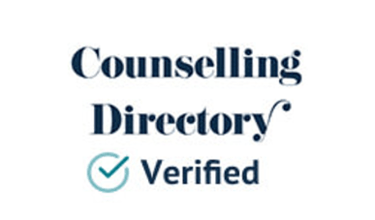How to Choose the Right Clinical Supervisor
A Guide for Therapists


How to Choose the Right Clinical Supervisor: A Guide for Therapists
Looking for clinical supervision in the UK? Discover how to choose the right clinical supervisor, with tips on values, approach, specialisms, and relational fit for counsellors and psychotherapists.
Finding the right clinical supervisor can make all the difference in your journey as a counsellor or psychotherapist. Whether you're newly qualified or a seasoned practitioner, supervision is the backbone of ethical, effective, and sustainable therapy practice.
But with so many options available, how do you choose a clinical supervisor who’s the right fit for you?
This guide will walk you through what to consider when searching for the best supervisor for counsellors and psychotherapists in the UK—so you can feel confident, supported, and professionally held.
Why Clinical Supervision Matters
Clinical supervision is far more than a professional requirement. At its best, it’s a relationship that nurtures your growth, supports your wellbeing, and strengthens your therapeutic work. Good supervision offers a reflective, emotionally safe space where you can bring both clinical challenges and personal insights—without judgement.
When the supervision relationship is strong, you feel grounded, resourced, and continually evolving as a therapist.
What to Look for in a Clinical Supervisor
If you’re wondering how to choose a clinical supervisor, here are the key areas to consider:
1. Relational Fit: Do You Feel Safe, Seen and Understood?
One of the most important factors in choosing the right clinical supervisor is the relational fit. You need someone with whom you feel emotionally safe—where you can be honest, vulnerable, and imperfect.
Ask yourself:
Can I bring the full range of my experience to this space?
Do I feel supported, not scrutinised?
Is the relationship collaborative, not hierarchical?
Supervision should feel like a space where you can grow, not where you have to perform.
2. Shared Values and Approach
Consider what matters most to you in your therapeutic work and whether your supervisor shares those values.
Are they trauma-informed?
Do they work relationally or integratively?
Do they affirm LGBTQIA+ and neurodivergent identities?
Are they open to working with your specific modality or evolving style?
When your supervisor understands your approach and values your way of working, supervision becomes a space of alignment—not compromise.
3. Relevant Specialisms and Experience
While not essential, it can be hugely helpful if your clinical supervisor has experience in your areas of interest or client focus.
For example:
If you work with trauma, is your supervisor confident in that area?
If you support neurodivergent clients, are they affirming and informed?
If you're LGBTQIA+ or work with that community, do they ‘get’ the nuances?
Look for someone who brings both knowledge and sensitivity to the work you do.
4. Supervision Style and Structure
Every supervisor brings their own style. Some are more structured and directive, while others are spacious and exploratory.
Think about:
Do I prefer a more structured session or space to explore freely?
Do I want a supervisor who offers challenge, reassurance, or both?
You’re allowed to choose the format and flow that supports you best.
5. Location and Accessibility (Online or In-Person)
If you're looking for clinical supervision in the UK, consider practicalities like:
Do they offer online supervision or in-person sessions?
Are session times flexible around your practice?
Are fees clear and sustainable for you?
Therapists across the UK are increasingly choosing online clinical supervision for ease and flexibility—especially when seeking a supervisor with a particular specialism.
Questions to Ask a Potential Clinical Supervisor
Before committing, book an initial call or consultation. Here are some helpful questions to ask:
How would you describe your supervision style?
What is your approach to emotional safety and vulnerability?
Do you have experience working with my client group or modality?
How do you handle ethical dilemmas or complex cases?
What’s your policy on cancellations, fees, and frequency?
Trust your gut during this conversation. A good supervisor won’t just say the right things—they’ll feel like someone you can trust and grow with.
Supervision Should Work For You
Choosing the right clinical supervisor is about finding someone who honours your way of working, supports your development, and sees you as a whole person—not just a therapist. If your current supervision doesn’t feel safe, supportive, or aligned, you are allowed to re-evaluate.
Supervision should leave you feeling resourced, not depleted.
I offer clinical supervision for counsellors and psychotherapists across the UK—online and in person. My approach is warm, inclusive, and emotionally safe. I support therapists working with:
Neurodivergent clients
LGBTQIA+ communities
Relational and integrative models
Trauma-informed practice
If you’re seeking a supervisor who values collaboration, authenticity, and your unique way of working, I’d love to hear from you.






